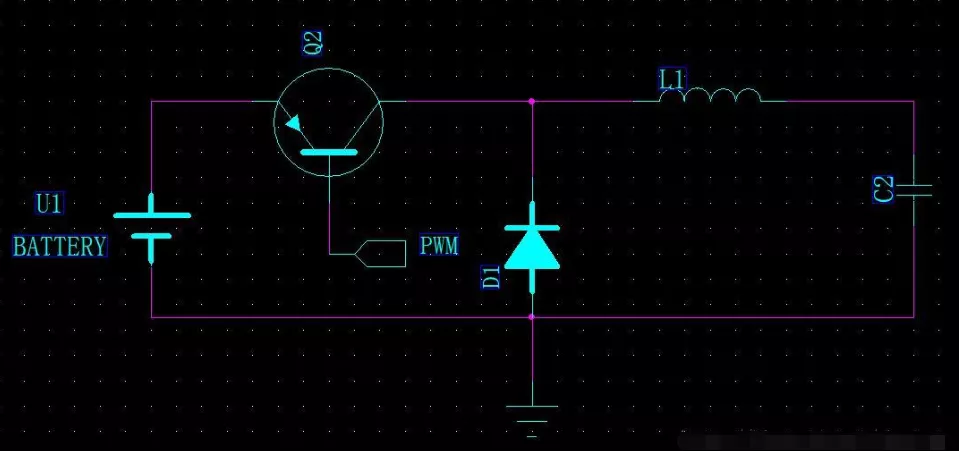Working principle of step-up chip and step-down chip
Time:2022-07-07
Views:2025
Buck mode - boost mode, which you are familiar with, is also used more, such as 5v- "3.3V voltage stabilization. There are many corresponding chips, which you can search online, including LDO mode and DC-DC mode. Among them, the peripheral circuit of LDO mode chip is relatively simple, which only needs to add filter capacitors at the input and output terminals. The chip circuit of DC-DC mode is relatively complex, but it is more efficient. Generally, external capacitors and inductors are required. The inductor is charged by closing the switch. After disconnecting the switch, the inductor is discharged as a power supply. The output voltage value can be adjusted through the duty cycle of PWM, and the maximum voltage value will not exceed the power supply voltage. The basic circuit of DC-DC step-down mode is shown in the following figure:

Boost mode, which is also common, is a kind of DC-DC. When the whole circuit uses only a single power supply (such as a 3.7V lithium battery), it can output a lower voltage such as 3.3V and 1.6V to power the IC. Sometimes the circuit needs a higher voltage. For example, the screen of some mobile devices needs a higher voltage to drive, such as 12V. It is not realistic to add another 12 independent power supply in the mobile device, and the lithium battery is generally 3.7V (4.2V when fully charged), At this time, we need to use the boost circuit, which also has the corresponding IC. Generally, we need to cooperate with the inductance and capacitor to realize the boost. The connection mode of DC-DC in the boost and step-down mode is different. The inductor is charged by closing the switch, and the electromotive force of the inductor is connected in series with the power supply to increase the voltage when the switch is opened. The output voltage can be adjusted by the duty cycle of PWM. When the duty cycle is 50%, the output voltage is twice the input voltage. The basic circuit of boosting is shown in the figure below:

Boost mode, which is also common, is a kind of DC-DC. When the whole circuit uses only a single power supply (such as a 3.7V lithium battery), it can output a lower voltage such as 3.3V and 1.6V to power the IC. Sometimes the circuit needs a higher voltage. For example, the screen of some mobile devices needs a higher voltage to drive, such as 12V. It is not realistic to add another 12 independent power supply in the mobile device, and the lithium battery is generally 3.7V (4.2V when fully charged), At this time, we need to use the boost circuit, which also has the corresponding IC. Generally, we need to cooperate with the inductance and capacitor to realize the boost. The connection mode of DC-DC in the boost and step-down mode is different. The inductor is charged by closing the switch, and the electromotive force of the inductor is connected in series with the power supply to increase the voltage when the switch is opened. The output voltage can be adjusted by the duty cycle of PWM. When the duty cycle is 50%, the output voltage is twice the input voltage. The basic circuit of boosting is shown in the figure below:
|
Disclaimer: This article is transferred from other platforms and does not represent the views and positions of this site. If there is infringement or objection, please contact us to delete. thank you! |











